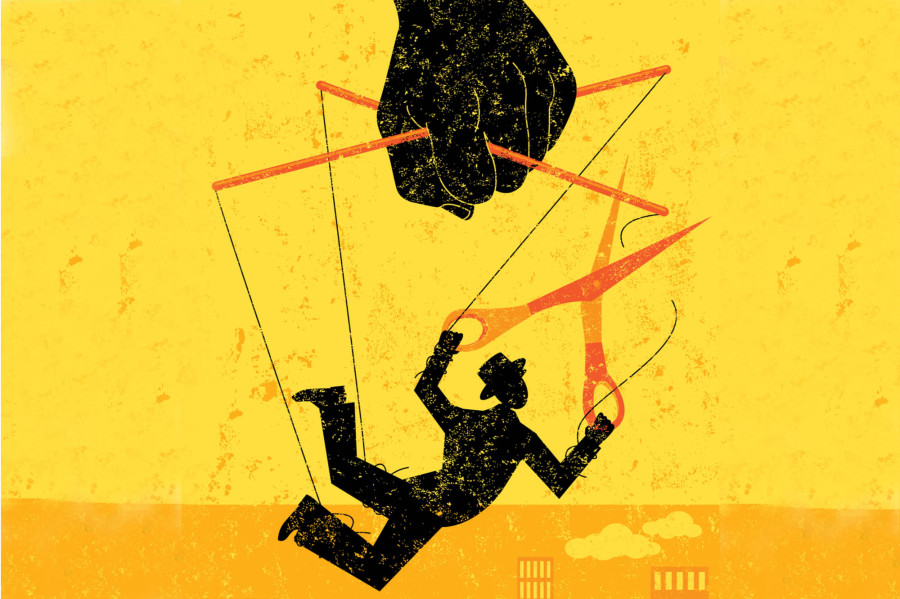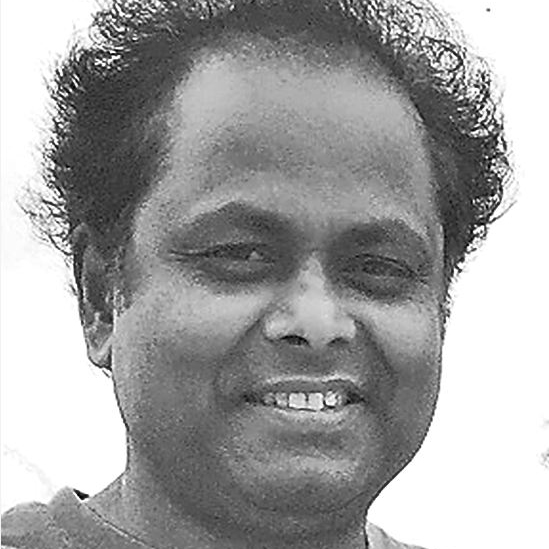Columns
An experiment in identity-based federalism
CM Lalbabu Raut has the opportunity and duty to deliver good governance to his people so that they don’t feel alienated anymore.
Pramod Mishra
In the last 10 years of writing a regular column for this newspaper, the plains of Nepal, called Madhes or Tarai, has been the focus of my consciousness even when not writing about it directly. The fact that I grew up in Madhes, and it is part of my identity, is only one reason among many. My cosmopolitan worldview is grounded in the hard reality born out of the Himalayan plains. So, I have written about it often—defending it and its people against the centuries of continuing discrimination by the Nepali state; very often criticising its leaders for their lapses and its culture for such social ills as dowry, child marriage, an entrenched caste system, and regressive attitudes toward women and education.
But what I have not seriously considered are its centuries of statelessness and the subsequent effects this had on the people and their mindset. What is it like, psychologically, for people to not feel any affiliation to a state? What does it feel like to not be protected by the state? In a society where the priest gives his opinion and calls it scripture-based or where the village chief pronounces judgement based on his feudal power, can such a predominantly peasant society rule itself when the opportunity comes? Accustomed to considering the state as the oppressor and the rulers as alien tyrants with a different language, dress and ways, how would such a peasant community view or deal with self-governance when some of their own become rulers from their midst? The state was considered a suspect entity, but with federalism has been brought closer to the people. There are questions still on how the leaders—chosen by their own people—would rule. Will they work for the public good as a mission or for themselves and their family, clan, caste and kinship network?
Even though the majority of Nepalis remained alienated from the state (the Nepali-speaking hill caste’s sense of cultural affiliation deepened only with the advent of the one-language, one-dress Panchayat ideology even as many remained opposed to it politically), the alienation of Madhesis was at another level. This made the few Madhesis who somehow made it into government service still considered as not part of the state.
Madhes now is a cultural, political and social laboratory. The ability of this group of people, with such a hierarchical and diverse caste system to forge a common political bond will be put to the test. Also under the magnifying glass is the leaders’ ability to work together for the common good.
When the chief attorney of Province 2, Dipendra Jha, mentioned how Chief Minister Lal Babu Raut was going to be the chief guest at the convention of the Association of Nepali Teraian in America (ANTA), I took it as an opportunity to deepen my learning. The ANTA convention was in Des Moines, Iowa, which is near the state of Illinois where I reside. I invited the chief minister to be my guest and made plans for him to give a lecture at my university. The chief minister couldn’t arrive in time to see and do many of the things I had planned for him. This was due to an official delay by the Ministry of Foreign Affairs in issuing his passport, even though the Cabinet had already approved his visit.
Nevertheless, the presentation that he and Chief Attorney Jha made to my colleagues and students mesmerised them. Raut appeared to be a man with a mission to work for his people and posterity. The work the Province 2 government has done in the field of Dalit upliftment and gender equality is unparalleled. Consider the plan to give every eighth-grade female student a bicycle to go to school. Many might call this as borrowing from a similar plan made by Bihar’s Nitish Kumar, but it is a good plan nonetheless.
Moreover, the Raut-led government has been able to pass many other revolutionary programmes and laws. The provisioning of Rs100,000 insurance for every girl at birth, a 50 percent employment reservation for females, and the stipend for Dalit children for high school—combined with free education all through college and university—are some of them. The fact that Province 2 assembly members passed these laws without much opposition speaks of their foresightedness and willingness not only to change the face of the province but transform its heart and soul for the better.
Samajbadi Party Nepal’s leadership, from Raut’s role in the province to the national leaders’ role in the centre, all deserve our applause for the changes being brought to Province 2. The Rastriya Janata Party Nepal, a coalition partner, also deserves our praise. But bigger questions remain for both the provincial and central leadership: Can they forsake the culture of corruption which has become endemic in the state structure in Nepal? Can Raut rein in corrupt ministers with the help of his own central leaders and the leaders of his coalition partners? Can the necessary physical infrastructure be built without bungling the budget? The people, who have been without the protection of and identification with a state for so long, are craving for good and clean governance. Among the many insights that I gained from my conversation with Raut was that social reform must go hand in hand with development. But can social change survive without corruption-free governance?
As I said, Province 2 is a political experiment in federalism. A people who had never experienced a government by its own people have achieved it now. Will they feel reaffirmed in their belief that you need to have people who look like you, talk like you in positions of state power to feel connected to the state? Or will they be disappointed that their own are no different from anybody else when it comes to occupying a seat of power? A visionary leader like Chief Minister Raut needs the support of many to realise his vision, including his team, his party leadership and coalition partners. But, above all, a visionary leader needs moral courage to implement his vision. Doing good is as important as preventing harm.
***
What do you think?
Dear reader, we’d like to hear from you. We regularly publish letters to the editor on contemporary issues or direct responses to something the Post has recently published. Please send your letters to [email protected] with "Letter to the Editor" in the subject line. Please include your name, location, and a contact address so one of our editors can reach out to you.




 18.12°C Kathmandu
18.12°C Kathmandu















